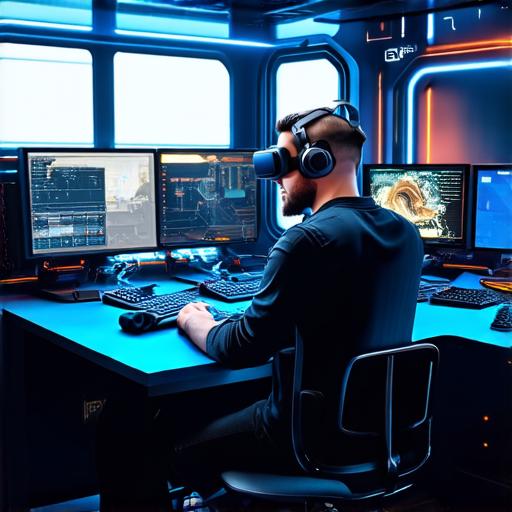The world of video games has grown exponentially in recent years, with developers from all over the world creating immersive and engaging experiences that captivate players for hours on end. To become a successful video game designer, you need to have a deep understanding of the craft and a passion for creating fun and exciting games. In this comprehensive guide, we will explore everything you need to know to be a video game designer.
What is Video Game Design?
Before we dive into the specific skills and tools required to become a video game designer, let’s first understand what video game design entails. At its core, video game design involves creating the rules, mechanics, story, characters, art, and overall experience of a game. This process requires creativity, problem-solving, and attention to detail.
The Role of a Video Game Designer
Video game designers play a crucial role in the development process. They work closely with other members of the team, such as programmers, artists, and writers, to bring their ideas to life. Some of the key responsibilities of a video game designer include:
- Creating game mechanics and rules
- Designing levels and environments
- Developing character and story arcs
- Writing dialogues and narratives
- Balancing the game’s difficulty
- Testing and iterating on designs
- Collaborating with other team members to ensure a cohesive experience.
The Skills You Need to Be a Video Game Designer
Becoming a video game designer requires a combination of technical, creative, and interpersonal skills. Here are some of the key skills you need to master:
- Programming and scripting
- Art and design
- Writing and narrative development
- Game mechanics and balance
- Problem-solving and critical thinking
- Teamwork and collaboration
- Communication and presentation skills
- Creativity and innovation
- Adaptability and flexibility
- Attention to detail and quality assurance.
Let’s take a closer look at each of these skills in more detail.
Programming and Scripting
As a video game designer, you will need to have a solid understanding of programming languages such as C++, Unity, or Unreal Engine. You will also need to be proficient in scripting languages such as C or Python to create the rules and mechanics that drive the game. Knowledge of databases and SQL is also important for storing and managing game data.
Art and Design

Video game design involves creating not only the rules and mechanics of the game but also the art and visual elements that bring it to life. As a video game designer, you will need to have strong skills in 2D and 3D art, character design, environment creation, and animation. You will also need to be familiar with tools such as Photoshop, Maya, or Blender.
Writing and Narrative Development
A well-written story and engaging narrative are essential components of any great video game. As a video game designer, you will need to have strong writing skills and be able to develop compelling characters and plots that keep players engaged. You will also need to be familiar with tools such as Twine or StoryMapJS for creating interactive narratives.
Game Mechanics and Balance
The rules and mechanics of the game are the foundation upon which the entire experience rests. As a video game designer, you will need to have a deep understanding of game theory and be able to design balanced gameplay that challenges players without frustrating them. You will also need to be proficient in tools such as Excel or Google Sheets for creating spreadsheets and tracking game data.
Problem-Solving and Critical Thinking
Video game design involves solving complex problems and thinking creatively to overcome challenges. As a video game designer, you will need to have strong critical thinking skills and be able to approach problems from multiple angles to find the most effective solutions. You will also need to be comfortable working with ambiguity and uncertainty, as game development is an inherently iterative process.
